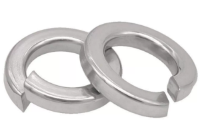famous drywall screw sizes
Understanding Famous Drywall Screw Sizes
When it comes to drywall installation, the right materials can make all the difference. Among these, drywall screws are essential, acting as the backbone of the structure by securing the drywall to framing. However, with a variety of sizes available, understanding which drywall screw to choose is crucial for achieving a professional finish. In this article, we explore some of the most common drywall screw sizes, their intended usage, and factors to consider when selecting the right screws for your project.
Common Sizes of Drywall Screws
Drywall screws come in several sizes, typically categorized by length and gauge
. The two most common lengths for drywall screws are 1 inch and 1 1/4 inches.1. 1-inch Drywall Screws 1-inch screws are ideal for attaching 1/4-inch or 3/8-inch thick drywall to metal studs. Their shorter length ensures that they adequately secure the drywall without penetrating too far into studs, minimizing the risk of damaging infrastructure behind the drywall.
2. 1 1/4-inch Drywall Screws This is perhaps the most popular size for general drywall installation. It works well for attaching 1/2-inch drywall to wood or metal studs. The additional length provides a better grip and ensures the drywall is securely fastened, reducing the likelihood of sagging or cracking over time.
3. 1 5/8-inch Drywall Screws For thicker materials, such as 5/8-inch drywall, 1 5/8-inch screws are recommended. These screws can penetrate deeper into the studs, ensuring that the drywall is firmly held in place. This extra support is particularly beneficial in high-traffic areas where walls may experience more stress.
4. 2-inch Drywall Screws Used primarily for specialty applications or when attaching drywall to structural components, 2-inch screws can provide the needed length for anchoring in heavy-duty installations. They are less common but useful in specific contexts, such as ceiling applications where additional strength is necessary.
famous drywall screw sizes

Choosing the Right Gauge
In addition to length, important considerations for drywall screws include their gauge and the material they are made from. The gauge indicates the screw's thickness; common gauges for drywall screws range from 25 to 20. A lower gauge number means a thicker screw. Typically, a 25-gauge screw is sufficient for most drywall installations, but thicker gauges may be needed for especially heavy materials or commercial installations.
Moreover, the choice of screw material should not be overlooked. The most commonly used drywall screws are made of steel and have a corrosion-resistant coating, which is essential for maintaining integrity over time. For humid environments, stainless steel screws might be more appropriate to prevent rust.
Tips for Installation
When using drywall screws, it’s pivotal to use the right tools to ensure they are driven in correctly. A power screwdriver or drill with a depth-sensing feature can help avoid overdriving, which can damage the drywall paper and lead to problems during finishing. Additionally, it is important to space screws appropriately, typically around 16 inches apart on walls and 12 inches on ceilings, to provide adequate support for the drywall.
Conclusion
In conclusion, understanding drywall screw sizes is essential for achieving a successful drywall installation. Selecting the right size and gauge of screws will not only enhance the strength of your walls but also improve the overall finish of your project. Whether you're a seasoned contractor or a DIY enthusiast, investing time in choosing the correct drywall screws will pay off in the long run. By considering factors such as length, gauge, and material, you can ensure your drywall installation stands the test of time and remains structurally sound.
-
Top Choices for Plasterboard FixingNewsDec.26,2024
-
The Versatility of Specialty WashersNewsDec.26,2024
-
Secure Your ProjectsNewsDec.26,2024
-
Essential Screws for Chipboard Flooring ProjectsNewsDec.26,2024
-
Choosing the Right Drywall ScrewsNewsDec.26,2024
-
Black Phosphate Screws for Superior PerformanceNewsDec.26,2024
-
The Versatile Choice of Nylon Flat Washers for Your NeedsNewsDec.18,2024










